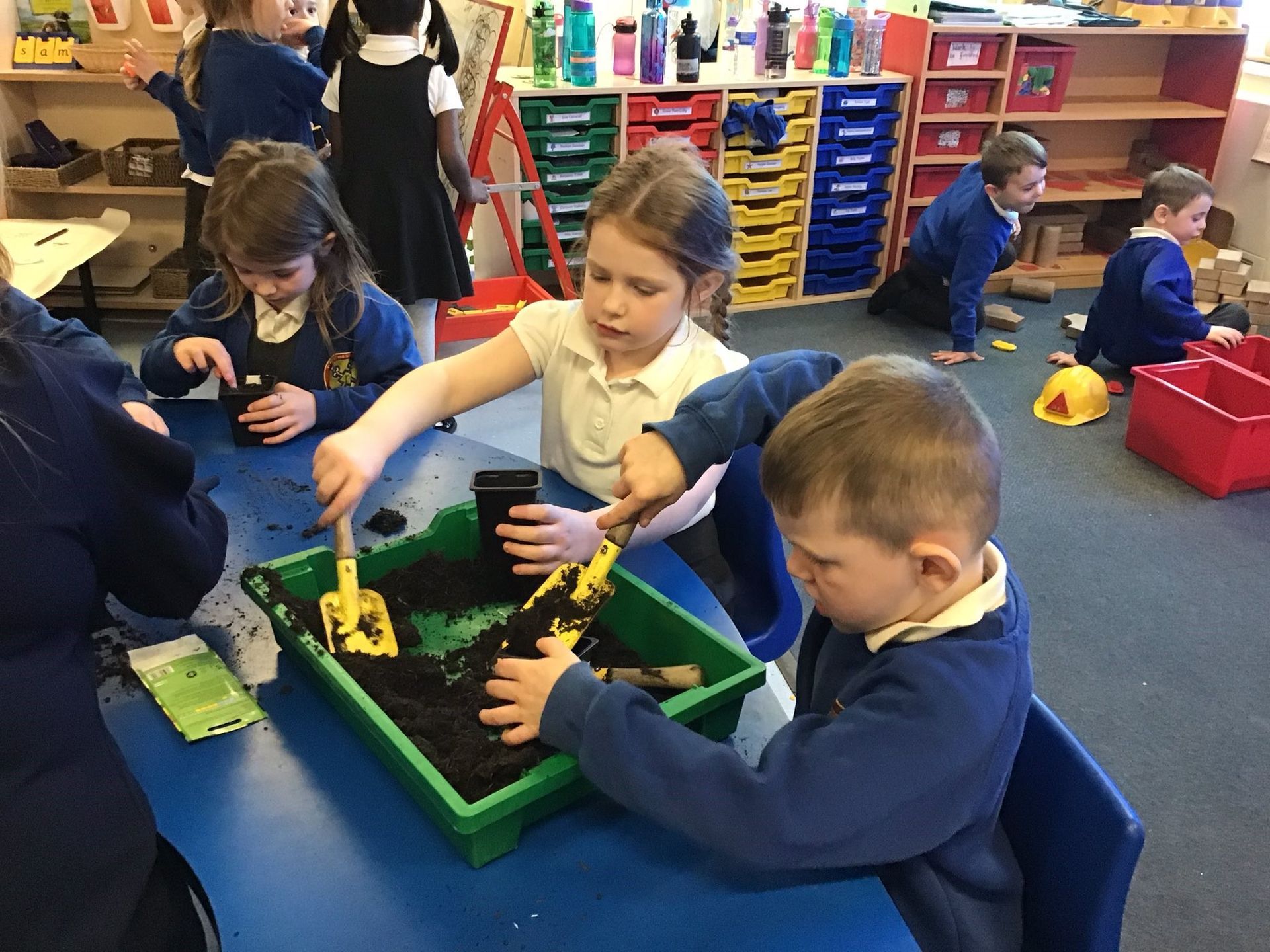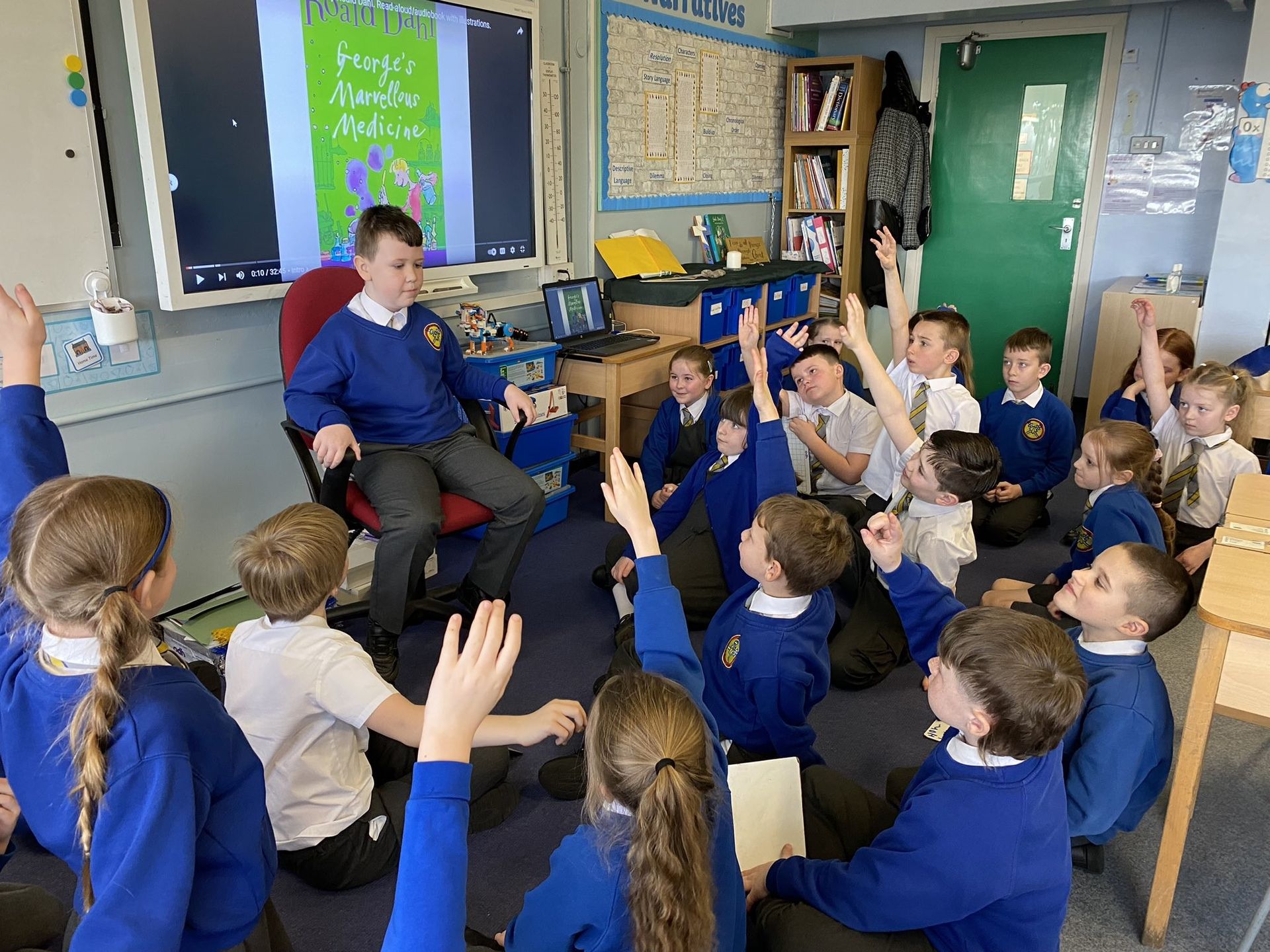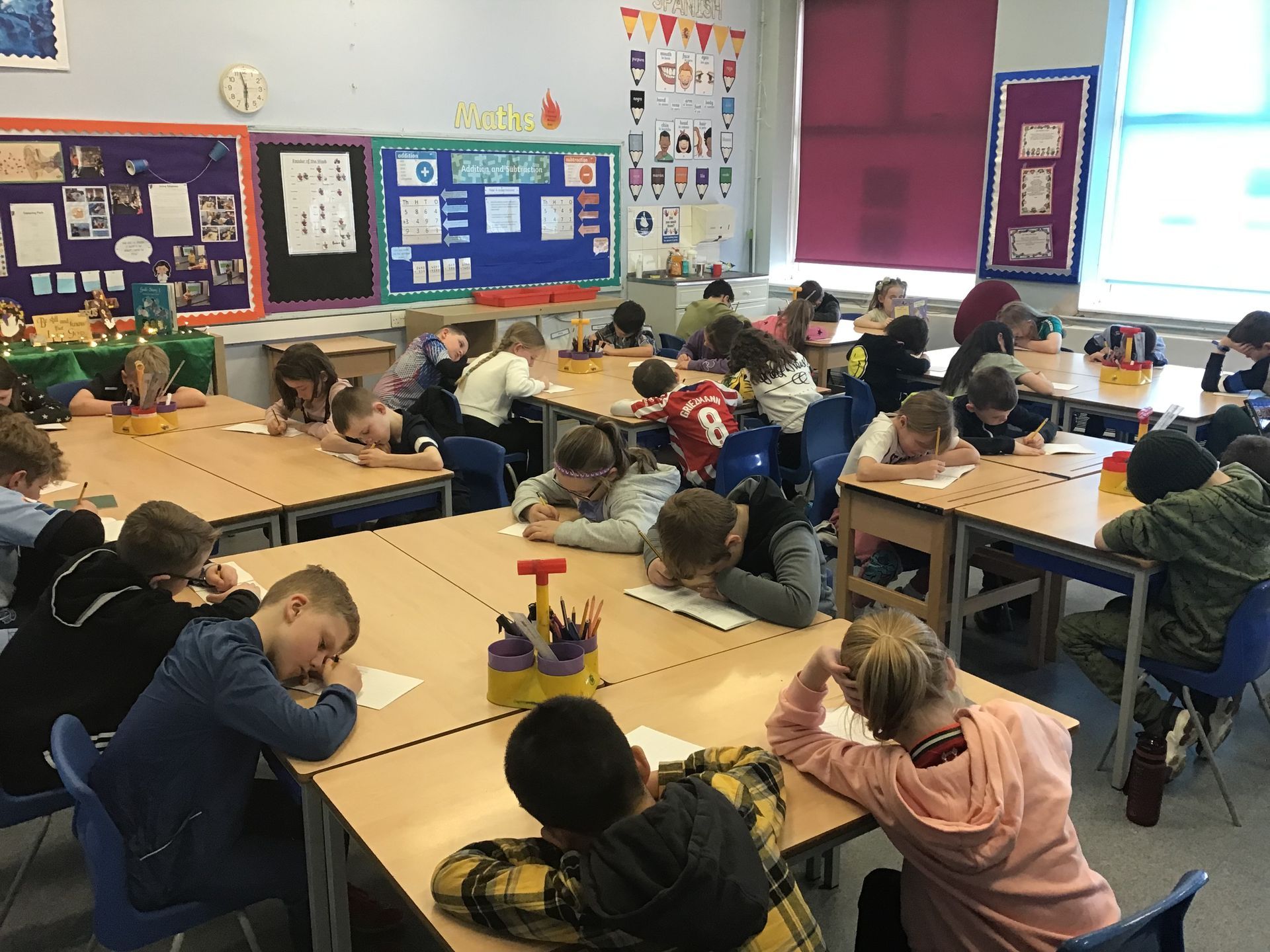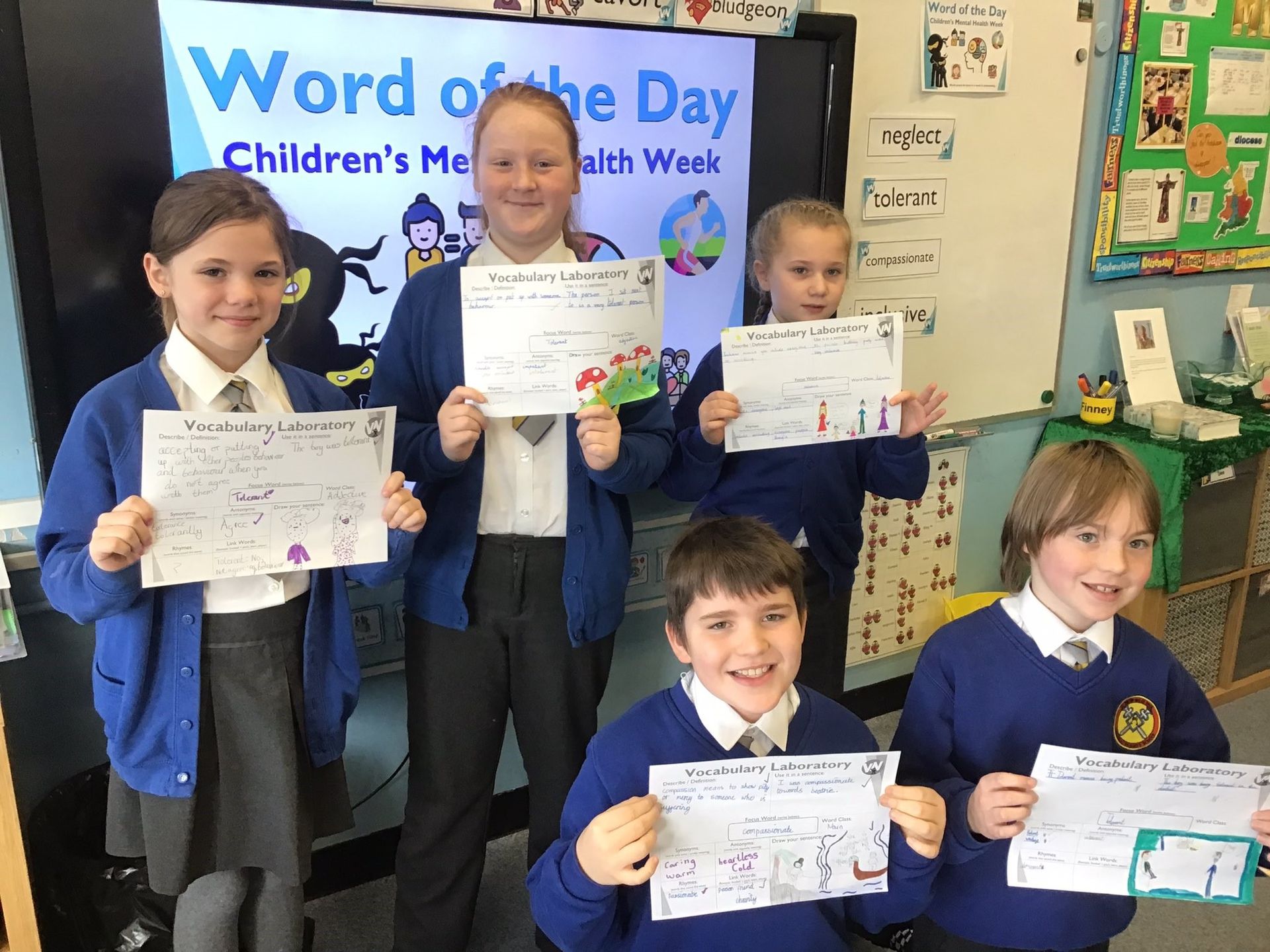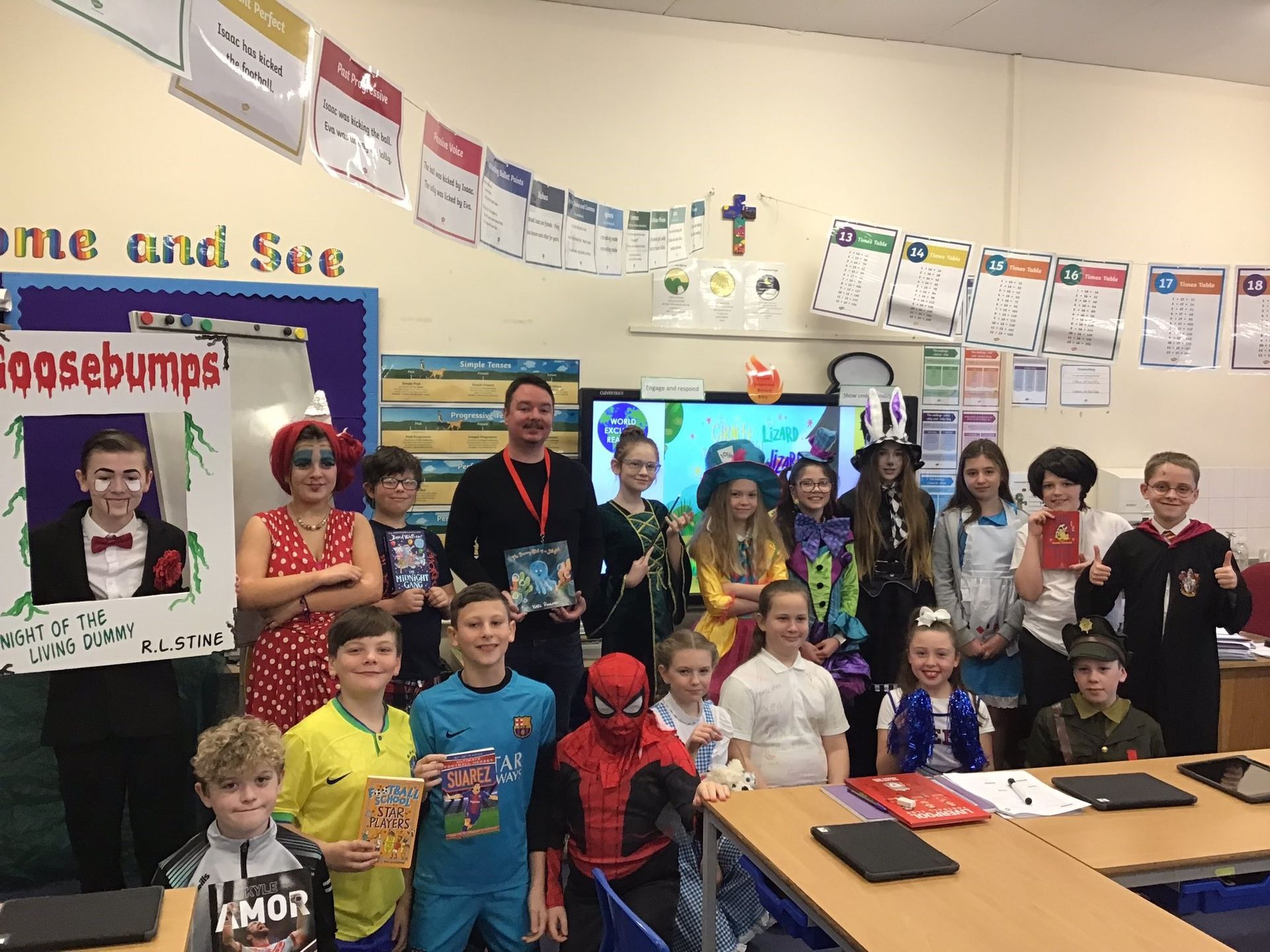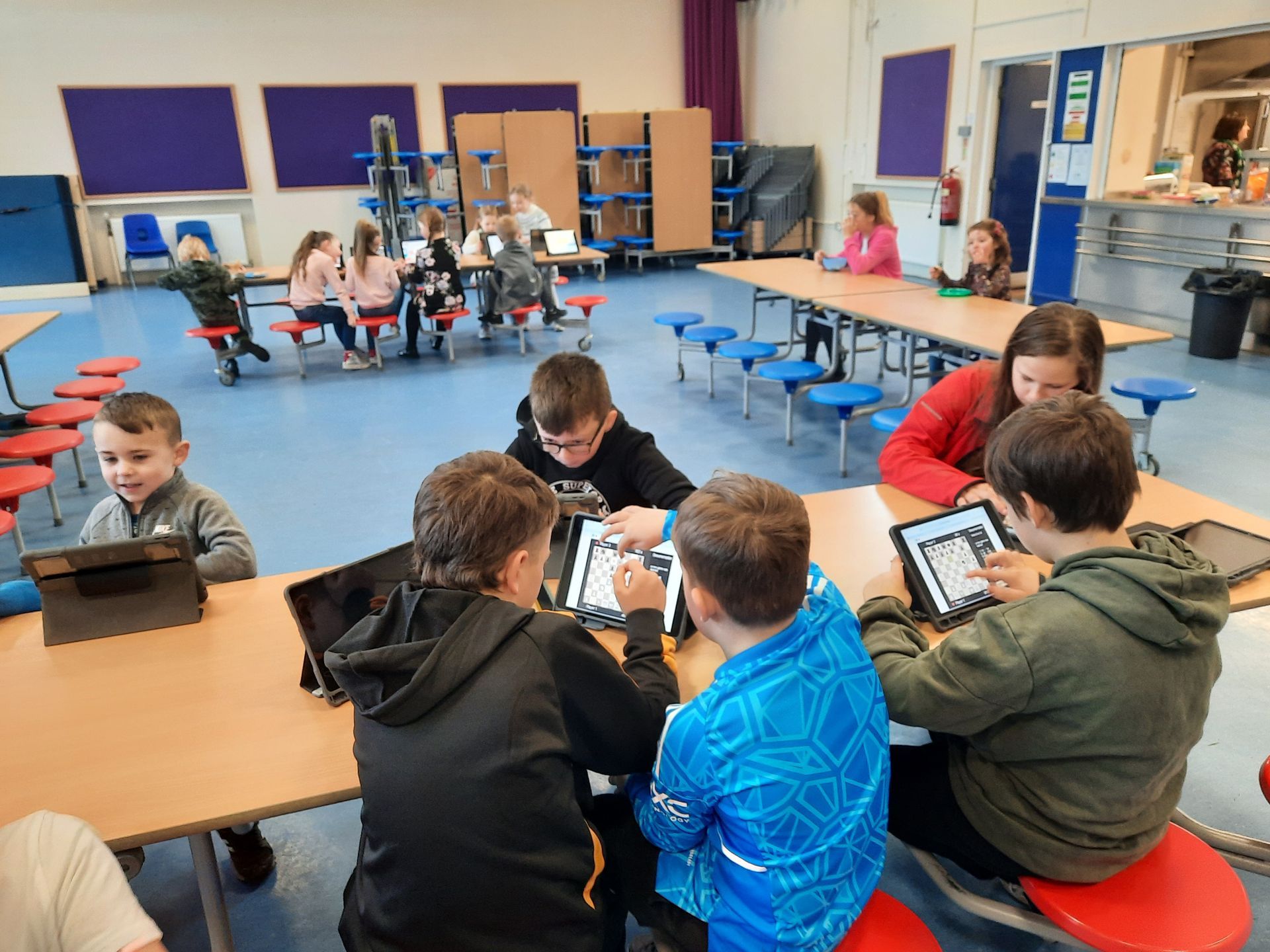Phonics & Reading
Statement of Intent, Implementation, and Impact – English Reading and Phonics
Intent
At St Peter and St Paul Catholic Primary School, we believe that ‘reading is the gateway skill that makes all other learning possible’ (Barack Obama: 2005) and as such, is fundamental to our children’s success across the whole of the curriculum and in their lives beyond their time in our school.
We strive to ensure that our children are taught to read with fluency, accuracy, confidence and enthusiasm both in discreet reading opportunities and across the wider curriculum. Ultimately, we aspire to develop in our children a love of reading which will last them a lifetime.
Cressida Cowell (Children’s Laureate 2020-21) reinforces the importance of reading as a school priority: “Study after study has shown how reading for pleasure is vital for academic success, mental health and even later economic success. By sparking growing imaginations, stimulating critical thinking and helping to develop empathy, reading gives children the very skills they need to succeed at school, at work and in life”.
At our school we are passionate about giving our children the very best life chances we can, therefore we are relentless at making reading a school priority. It consistently forms a part of the school development plan which ensures that all elements are monitored, their effectiveness evaluated, actions reviewed, and necessary professional development provided.
The teaching of reading at our school, is based on the five essential components needed to develop fluent, confident readers:
- Phonemic awareness - the ability to hear, identify, move or change sounds (phonemes), in spoken words.
- Phonics – recognising the link between sounds (phonemes) and letters (graphemes) to decode words.
- Fluency – the ability to read accurately, quickly and with expression.
- Vocabulary – knowing the meaning of words in order to understand what they are reading.
- Comprehension – understanding and interpreting what they have read.
Reading Implementation
Reading is a school priority within our School Development Plan. School leaders and governors recognise that reading is a skill that gives children access to the rest of the curriculum and to life-long learning. We ensure training and monitoring of reading is in place and it is regularly reviewed.
Phonics from the start
We use the systematic synthetic phonics programme (Bug Club Phonics) in the Early Years and KS1 to deliver our daily phonics and support our children’s reading and spelling. Our daily phonics sessions follow a very structured format, and the children are also taught to read and spell words from the National Curriculum and are tested on these. The structured sessions include handwriting and revision of a previous sounds/spelling patterns, learning to read new words, including those words in dictated sentences and developing memory skills to aid retention of new words. Phonics application and progress is tracked, gaps in learning are identified and interventions are put in place.
Programme and Progress
At St Peter and St Paul Primary Catholic School, we use the Bug Club Phonics programme to get children off to a flying start with reading. Bug Club Phonics is a phonic based approach to teaching reading. It involves children learning to read sounds and how to blend them together to read words through a successful reading programme that enables every child to become a confident and fluent reader. It aims to teach all children to read at a pace that they are comfortable with.
Guided Reading (Key Stage 1) - Upon completion of their taught phonics session, the children will then take part in a grouped guided reading session which incorporates sounds and tricky words linked to the phonics session and relevant phase. To support this, the adult, prior to the read, will conduct a memory retrieval practice activity using flash cards of sounds and tricky words. The children will then be taken on a ’walk through’ of the book so as to familiarise themselves with the content before then reading the book as a group, where each individual is able to read specific pages. The children read with an adult between 2-4 times (depending upon the needs of the child/group) during the week and each book is read multiple times so as to ensure:
- Familiarity and Decoding skills,
- Fluency and Comprehension,
- The Development of Prosody and Expression (modelled by the lead adult).
Reading in Key Stage 2 - In Key Stage Two, we teach reading in whole class sessions where no child is left behind. Whole class reading is taught for 40 minutes a day, a minimum of four days per week. A typical week has two sessions based on the class's daily novel and two to three sessions based on the wider curriculum.
The class novel is read to the children for 15-20 minutes a day, at the end of each day. It is always read by the teacher. We invest in class sets of books to make sure the children can read along with the teacher during this time. This book is then studied for 40 minutes in whole class reading sessions. The aims of the session are to ensure that all the children are literally and figuratively on the 'same page' of the text. Our aim is that we are always reading the text TO the children and never AT the children. There are no exam-style questions, rather rich discussion on the over-arching themes of the text and these sessions end with a question where the children are encouraged to share their own opinions and thoughts.
The sessions on the other days largely link to the wider curriculum. These are also 40 minute sessions. More often than not, these sessions link to topics such as science, history or geography. Sometimes they will link to what the children are writing about in English, for example widening their knowledge about coral reefs or the Windrush generation. The aim of these sessions is to cover pivotal knowledge that the children need to access the wider curriculum. For example, if Year 3 are doing a science objective about igneous, metamorphic and sedimentary rocks, the morning reading lesson may cover what the knowledge needed around this is. This leaves time in the afternoon for our children to have more opportunities for practical scientific work. In the case of rocks, this may be smashing them up, getting them under microscopes and organising them into groups. By covering so much of the topic in a reading lesson, we have longer to impart the knowledge and more time to discuss it, but we also leave longer for our children to work scientifically and, in many instances, have more fun doing it.
On some occasions children will also read about relevant current events or explore poetry and other types of literature in these sessions.
Books match sounds
During the phonics/reading session, the children read phonic books that are closely matched to their increasing knowledge of phonics and ‘tricky’ words and, as children re-read the stories, their fluency increases. Along with a thought-provoking introduction, prompts for thinking out loud and discussion, children are helped to read with a storyteller’s voice.
Bug Club Phonics decodable readers have been written to match the order in which grapheme-phoneme correspondences are introduced in class, giving children the opportunity to practise their blending skills and to consolidate their knowledge. Each reader is available in print and as an eBook and is allocated to the children in these ways. The eBooks are invaluable in helping pupils to practise reading at home as they include a phoneme pronunciation guide to aid pupils’ blending skills.
This approach is mirrored in Key Stage 2 where children are allocated home reading books matched to their stage of development. A selection of banded eBooks are allocated using the Bug Club reading scheme and the children are also given a hard copy of a book to read at home from our Oxford Reading Tree scheme which is again banded in relation to the individuals stage of development.
Catch up quickly
Children’s progress is regularly monitored through termly assessments. Those who are not making expected progress are identified and intervention/sessions are put in place to ensure they make improved progress. The lowest 20% of children for reading in each class are heard read every day in school to help improve confidence, accuracy and fluency.
Early Reading Experts
All staff, including teachers and support staff working in KS2, have received phonics related training and the teaching of reading is regularly monitored by our school’s Phonics and Reading Coordinators. All staff within our school understand the concepts and importance of having a consistent approach to phonics and reading. Within KS2, the staff have developed an effective system for the teaching of spelling and guided/reciprocal reading to build on the skills that have been learned within KS1.
Love of Reading
At St Peter and St Paul Catholic Primary School we are passionate about helping children to love reading, not just while they are with us, but for the rest of their lives. We ensure that classes have access to a range of fiction, non-fiction and poetry books, which are regularly rotated and replenished; access to ’The News Shed’ children’s newspapers also provide an alternative to a traditional book.
Our reading ambassadors make book recommendations to their peers as do teachers to children and peer-to -peer recommendations are made within the class.
We have developed our own ‘reading spine’ – a selection of fiction, non-fiction and poetry – so that children at St Peter and St Paul Catholic Primary School experience a broad range of high-quality books and texts, thereby helping them develop their love of reading during their time with us.
To develop a love for reading at home, parents are signposted to websites such as Books for Topics and Lovereading4kids to help them select reading material for their children. There is an expectation that children read at home regularly and this is recorded in the reading diaries.
The celebration of World Book Day, World Read Aloud Day and other opportunities to recognise the importance and pleasure of books are planned for, as we are aware of the enjoyment that focusing on books and reading give to our children.
Subject Leadership / Subject Knowledge:
- All teachers and learning assistants are given support to deliver phonics lessons in EYFS, Key Stage One and Key Stage Two.
- Phonics delivery is monitored and assessed regularly by senior leadership team, ensuring a consistent approach and identifying any gaps through pupil progress meetings termly.
- CPD sessions conducted to give teachers and learning assistants the continuity and progression of skills across key stages and phases.
Word Reading (Phonics)
- We teach timetabled phonics (Bug Club Phonics) daily in EYFS and Key Stage One. We also provide interventions for those children in higher year groups who have not yet passed their phonics screening test.
- On entry assessments are completed in September.
- Whole class teaching of phonics takes place.
- Assessments are completed at the end of each phase and interventions are put in place.
- Phonics overviews of the half term’s teaching are shared with parents and sent home.
- Interventions for identified children are completed and outcomes reported on Edukey
- Key Stage Two phonics is continued for those who have not yet passed the Phonics Screening Test.
- All children who join the school midterm complete the Phonics assessment by the end of their first full week.
Individual Reading
- Key Stage 1 – each child should be heard twice weekly with Teacher/Learning Assistant
- Key Stage 2 – each child engages with the whole class reading sessions which enables teachers to proactively target specific individuals during the session
- Target readers are read with 1:1 with Teacher/Learning Assistant daily (children to be identified on Edukey)
- All children are given one reading for pleasure book, which is changed weekly. Parents are expected to hear their child read and comment in the reading record. School recommends that children read at least five times a week at home. A weekly reading award is given to a child in each class.
- All children have access to ebooks set on Bug Club that meet the phonic stage/band they are working at in school upon request.
Assessment
- Reading assessments are completed in line with the School Assessment Calendar on a termly basis
- Teacher assessment judgments are completed in line with the assessment calendar on a termly basis
Developing a Love of Reading
- We have a dedicated library filled with appropriate age-related texts, which is updated regularly and features Teacher recommendations which are interactive and enticing
- Parent workshops based around reading are set in the school calendar to engage parents and illustrate the importance of reading e.g. World Book Day, Parental Reading Sessions etc
- Children are rewarded for reading every night at home through the Dojo Reward Scheme
- A ‘Reader of the Week’ award is presented to a child in each class every week. Once the child receives two awards, they can choose a book from our school book vending machine to take home and keep.
- We have an annual Book Fair and celebrate World Book Day in creative, new ways each year
- Author visits take place each year to encourage our children to aim high and see how Reading/Writing could be a possible career route, as well as promoting the love of reading
- Opportunities for reading are provided across the curriculum: topic books, news articles, blogs, class magazines etc.
- There is talk and discussion about reading in a variety of contexts, both formal and informal
- Every day the teachers read aloud the class book to the children. These texts are chosen carefully so there is a range of high quality, diverse texts to engage the children and appeal to a range of children.
- Reading is encouraged at home and parents are supported parents to understand how to read to/with their children. Careful recording of what the children’s reading diet includes happens regularly so staff are able to monitor, develop and extend this as and when appropriate. Children are encouraged to borrrow books from the school library during their weekly visit.
- Key Stage One and Key Stage Two are encouraged to participate in the Summer Reading Challenge
- Book displays are put up around school and are changed regularly
Reading Impact
At St Peter & St Paul Catholic Primary, we aim to ensure that all children leave our setting with a solid foundation of reading knowledge skills and vocabulary. These qualities will enable them to apply and use reading skills not only as they progress into Secondary School but moreover in their everyday lives. We endeavour to instill confidence, resilience and independence within every child so that they can contribute positively to society as responsible global citizens.

